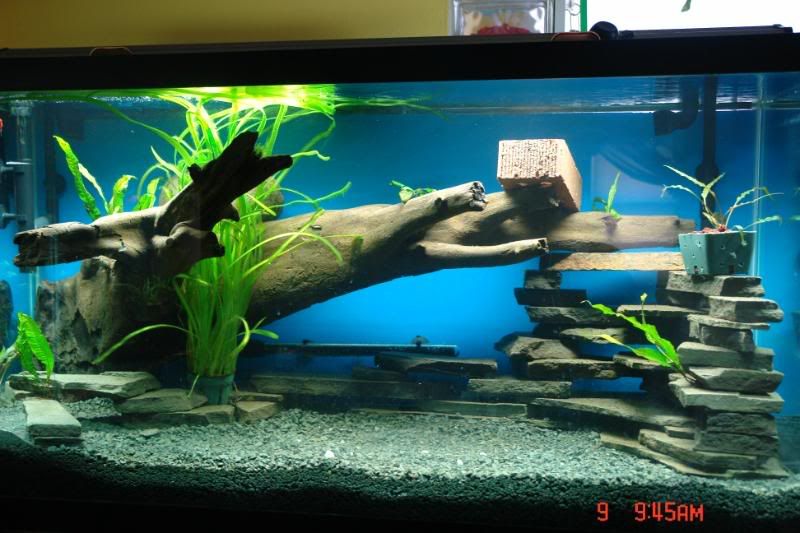Post
by chefkeith » Sun Aug 29, 2010 10:57 pm
There are a number of factors. Moving can be a very traumatic experience for clown loaches, so it could take awhile or it may never happen at all. I have a few loner clowns that rarely swim with the main packs, and I've had them for about 5 years.
How much do you know about the new loach? Is the new loach wild caught or has it been tank raised? Large wild caught loaches can be very shy and/or aggressive.
Did you buy this loach from a tank with other clown loaches? or was it already a loner? Sometimes when you break up a group of loaches, it's like breaking up a family. IMO, it's best to buy loaches in groups, especially if the group has been together since a young age or since being caught from the wild. IME, you just can't put a lone loach with an already tight group of loaches and automatically expect them to get along because they are of the same species. The clowns that I purchased in groups are always together and usually their groups merge as one. The lone clowns I got, are still loners to this day. One of my wild caught loners I need to feed late at night, while all the others are sleeping. He's a picky eater too, he'll only eat seafood or fresh veggies. He won't touch any store purchased processed foods. I've been doing this for him for about 3 years. The 1st 2 years I had him, I couldn't figure him out and I was constantly re-treating him for emaciation problems. So try feeding the new loach some seafood, like shimp, cod, tiliapia, or clams late at night. That may help.
Was the loach netted when you got it? Could it be injured? Sometimes clowns get their subocular spines caught in the netting. They are scaleless fish also, so if their slime coat got damaged by the net, it would make them more prone to parasites and bacterial infections.
When you got the new fish did you match the destination tank's water with the bag water or did you do some kind acclimation procedure? If you matched the water parameters exactly (Temperature, TDS, KH, GH, and pH) then you can usually skip acclimation, and just get the fish out of the bag water as quickly as possible. Acclimation problems can occur when the TDS doesn't match enough, resulting in osmotic shock to the fish. If osmotic shock doesn't kill the fish within a few weeks, then it could take several months for the fish to recover.
How long was the quarantine period? The minimum quarantine period should be 3 weeks, but that's only if the fish seems to be parasite free and 100% healthy. Otherwise Q period should last as long as it takes to get the fish healthy, plus an addition 3 weeks. I recommend giving the fish prophylactic treatments for the most common parasites during this quarantine period.
Before moving the fish from quarantine tank to main tank, the water parameters of the tanks should be matched exactly Or a very very very slow acclimation procedure should be done.
Hope this helps.
